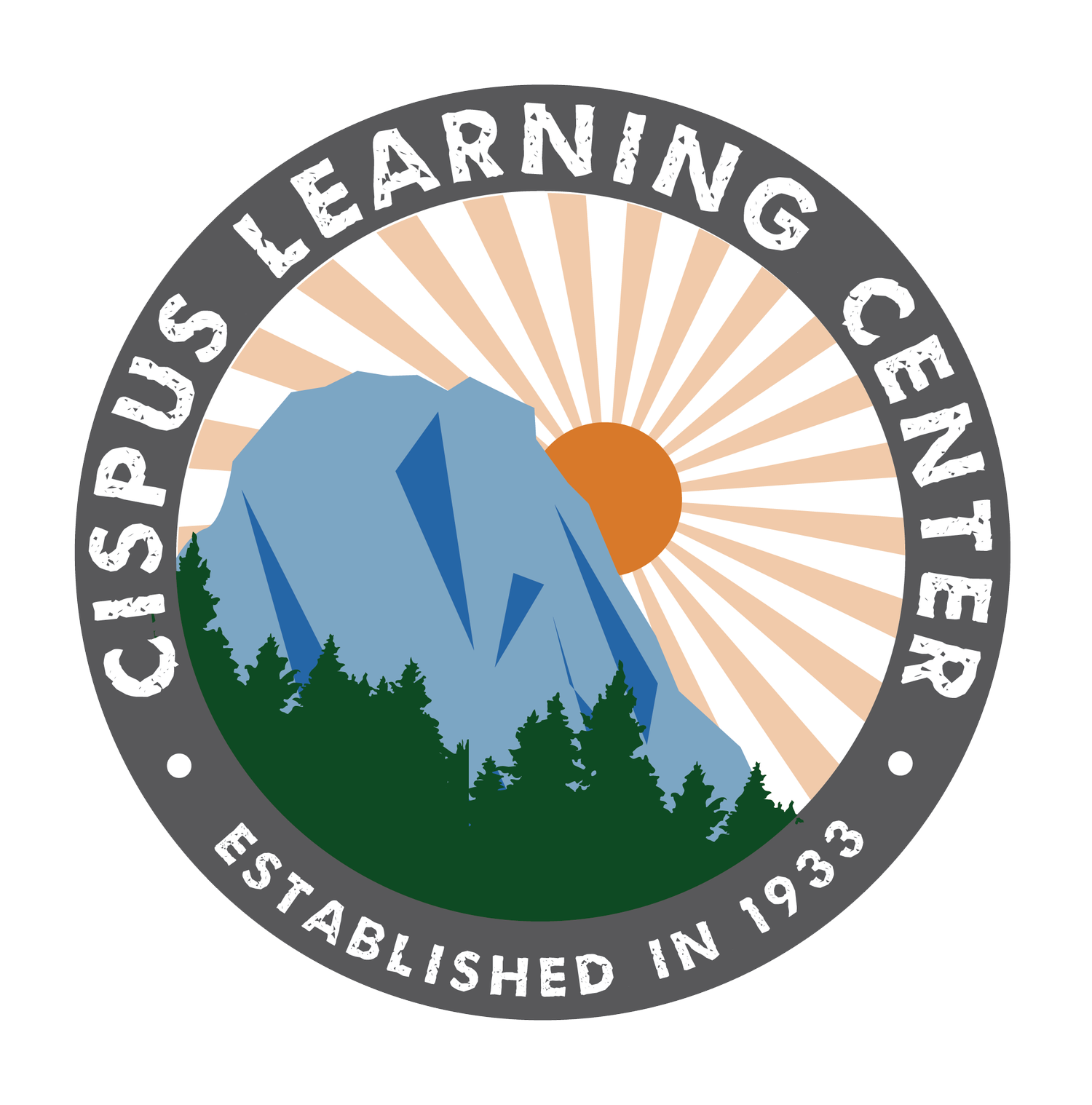Cispus Institute
Group effectiveness through Facilitation, Collaboration, and Leadership
The Cispus Institute has designed programs to give today's natural resource professionals proven, innovative communication and collaboration skills. The program is taught by current and retired agency professionals with on-the-ground experience working with people to resolve natural resource issues.
We provide tools and techniques to help you become more efficient and effective in working with others on important issues and decision-making processes. The skills you learn at Cispus will improve and enhance your ability to work collaboratively within agencies and with the public.
2024 Workshop February 26th to March 1st
The inter-agency supported Cispus Workshop (held once a year) offers a wide range of collaboration skills for professionals and co-operators in natural resource management. Over four days, participants from local, State, Federal natural resource management agencies and cooperating organizations explore in depth Successful Teams, Strategic Meetings Management and Collaborative Public Involvement.
Additional complementary sessions include Recognizing and Applying Learning Styles and Facilitation Skills and Techniques! We also have special evening sessions with guest speakers that address natural resource issues through story and song!
The Cispus Program will help you learn how to:
Conduct efficient and effective meetings
Create and maintain productive teams
Collaborate successfully with partners
Deliver information to reach diverse audiences
Communicate effectively
Manage the decision-making process
Click Here for Registration Form
Workshop Cost: $1,300 by February 5th, 2024 and $1,500 after that date. The registration fee includes lodging, meals, and workshop materials. Cancellations by February 5th, will be refunded the full registration fee less a $150 cancellation fee. There will be no refunds after February 5th, 2024.
2024 Video Click Here!
Other Provided Programs by Cispus Institute
The Cispus Institute focuses on building communication and collaboration skills among natural resource professionals. Sessions build upon the experiences of those attending and are based on best practices in adult education. Sessions are formatted to include content, activities, critical thinking, and problem-solving using strategies that are participatory and interactive.
If your organization is interested in one or more of the Sessions outlined below, contact the Cispus Institute to see about a customized menu of what we like to call "Cisbits" that can be delivered to your agency or organization.
For further information on Cisbits please E-mail Erin McConnell (BLM) at emcconne@blm.gov
Option 1- Learning Styles
A learning style is an individual's method of acquiring and processing information as they learn. Based on the research of David Kolb and a model developed by Bernice McCarthy, this session engages participants in discovering their dominate learning style as well styles that they may use less often.
The session is light and fun. Participants use a self-assessment tool to determine their own learning style and participate in focused small group discussions.
Discover your own personal learning style while recognizing the value of other styles.
Recognize how learning styles impact communication and human interaction.
1 to 1.5 hour
Option 2- Applied Learning Styles
Applied learning styles builds on the Learning Styles session by examining the left and right brain tendencies. Participants apply this information to their work environment
1 hour—prerequisite Learning Styles.
Option 3- Building Successful Teams
Become familiar with the characteristics of high performing teams. Recognize the stages of team development and four leadership styles that can affect team behavior. Learn the individual team member roles and responsibilities for effective team functioning. Understand the role of conflict in team dynamics and how to manage group problems. Learn key skills for evaluating the team's process. Apply and practice the concepts presented in a team setting.
2 or 3 hour Introduction.
4-6 hour - Intermediate
2 day comprehensive session includes extensive interactive and applied opportunities
Option 4- Meeting Management
This session focuses on tools and techniques to help you set a group up for success and keep it on track. Identify key roles and how to use them to manage your meeting. You will learn ways to increase group participation and follow-through, drive better decisions, and achieve objectives, whether you are a participant or the meeting facilitator. This session is a "must" if you frequently find yourself managing tough meetings of any type.
2 or 3 hour Introduction.
4-6 hour - Intermediate
2 day comprehensive session includes extensive interactive and applied opportunities
Option 5- Collaborative Public Involvement
This session takes a "roll up your sleeves" approach to provide participants with a greater understanding of what collaborative public involvement is, and isn't. Learn to connect with stakeholders across a wide spectrum of issues. Discover opportunities and challenges inherent in collaboration and partnerships. Expand your skills in framing and analyzing issues to determine goals and key players.
2 or 3 hour Introduction.
4-6 hour - Intermediate
2 day comprehensive session includes extensive interactive and applied opportunities
Option 6- Understanding Conflict
This session introduces participants to different modes for handling conflict, using the Thomas-Kimann Conflict Mode Inventory. Participants explore the differences between the modes, analyzing the benefits and pitfalls of each, as well as how they apply to working with environmental issues.
2 or 4 hour Introduction
6 hour intermediate
Option 7- Facilitative Techniques
This session provides an introduction to the skills and techniques used by an individual to effectively facilitate a group of people. The facilitator’s role is to manage the process, people, and information. Ground-tested methods are described for designing and managing a process to meet a groups objectives; managing group interactions to ensure open, respectful, and focused communication; and helping the group gather, organize, sort, and synthesize the information.
4 hours
Option 8- Leadership for the future
This session focuses on the qualities of leadership and some key techniques and skills individuals can apply to effectively engage colleagues in their vision, mission, and programming.
4 hours
Option 9- Engaging Volunteers Effectively
Explore basic techniques for recruiting, engaging and sustaining the volunteers in your organization. What draws people in? What motivates them to engage? How does work get completed?
3 hour Introduction
4 hour Intermediate
6 hour comprehensive

